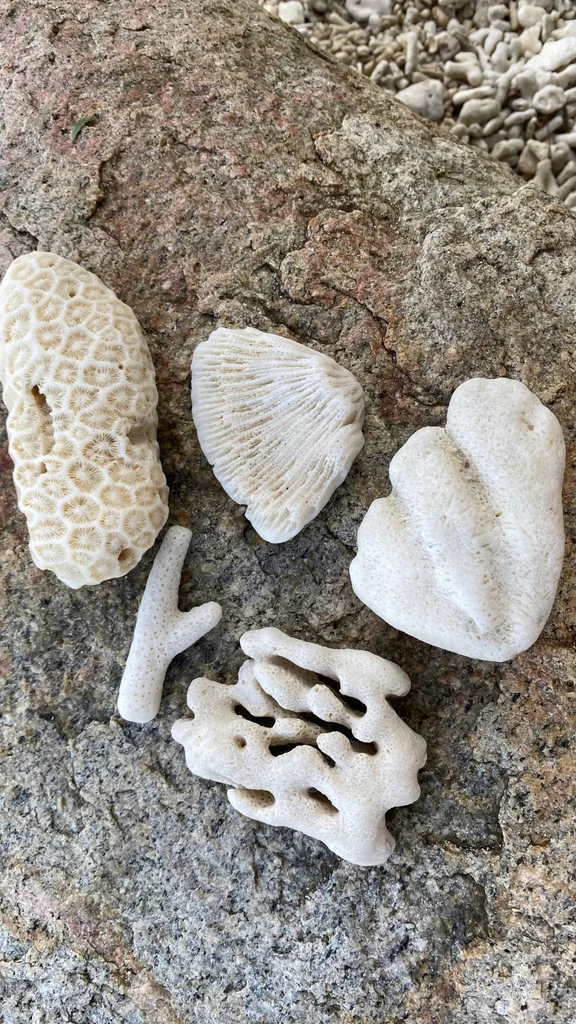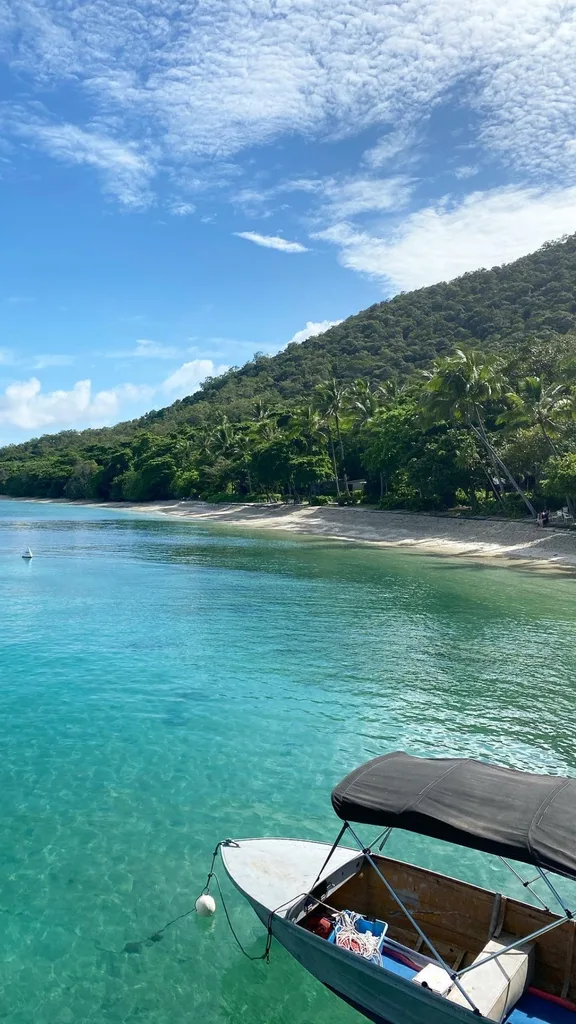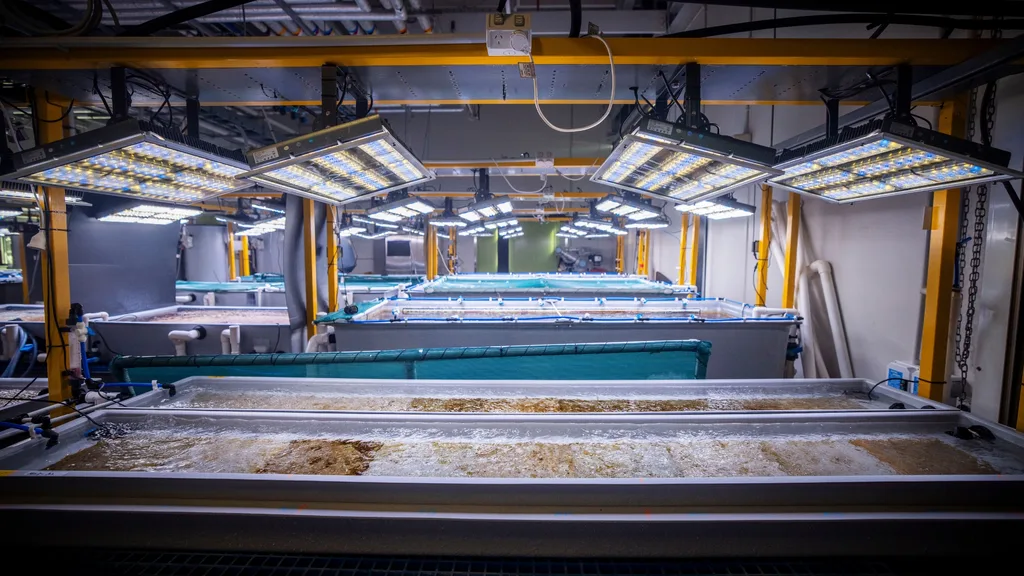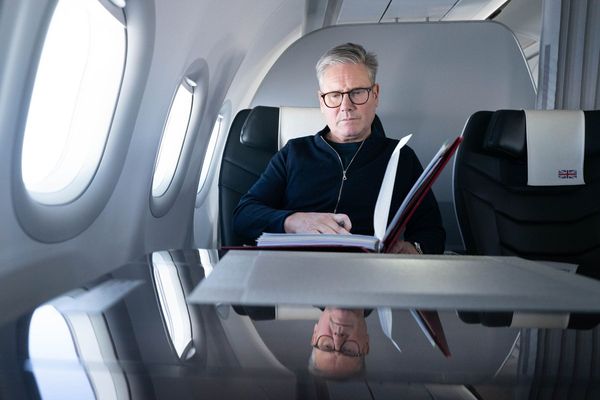Clad in a full-body stinger suit to protect myself against Tropical North Queensland’s venomous Irukandji jellyfish, I stand on the coral-strewn shore of Fitzroy Island and gaze out across the glittering Coral Sea. It’s hard to believe that just a short paddle from the beach lies one of the world’s most magnificent natural wonders: the Great Barrier Reef.
I step into a pair of flippers, strap on a snorkel and mask, and dive into the ocean. Within seconds, I’m surrounded by an underwater paradise. Orange clownfish dart into the wavy tentacles of sea anemones, a school of iridescent parrotfish swim by, and—to my delight—a majestic sea turtle glides above the coral gardens. Heaven.
The Great Barrier Reef is the world’s largest living structure, home to thousands of species of marine life. But when I duck dive for a closer look, most of the coral reef is stark and white as bone—a sign of coral bleaching.

coconut trees and lush rainforest. (Credit: Kayla Wratten)
According to the Great Barrier Reef Marine Park Authority, coral bleaching has already wreaked havoc on two-thirds of our national treasure. When corals are under stress—from issues like rising sea temperatures—they expel the microscopic algae that live in their tissues. And without these algae, corals’ tissues become transparent, exposing their white skeleton.
While my snorkelling sojourn was a surreal experience, it also exposed me first-hand to the devastating impacts of climate change.
But it’s not all doom and gloom. L’Oréal Groupe, which owns 36 international brands including Lancôme, Kérastase, La Roche-Posay, Ralph Lauren and Prada Beauty (to name a few), has partnered with the Great Barrier Reef Foundation (GBRF) to help preserve the future of marine life.
“Coral reefs are one of the most valuable yet vulnerable ecosystems on the planet. Without our help, these beautiful underwater cities and the animals that call them home will not withstand the impacts of climate change,” GBRF managing director Anna Marsden tells marie claire Australia.

“Our partnership with L’Oréal will deliver game-changing innovation in how we measure, protect and restore marine biodiversity, bringing hope to the future of coral reefs and the one billion people who rely on them,” she says.
Working with the foundation, L’Oréal Groupe aims to deploy two million heat tolerant corals on the reef by 2030. While ambitious, this goal is a vital intervention to help coral reefs withstand the devastating impacts of climate change—reducing the impact of total reef bleaching from marine heat waves.
“This collaboration is about more than restoration alone—it’s about building a sustainable model for nature regeneration that the world can follow,” Marsden says, describing the coral conservation project as a “lasting solution”.

“We are thrilled to be working closely with the Great Barrier Reef Foundation on this coral restoration project, marking one of the largest investments from the €50 million [$82 million] L’Oréal Fund for Nature Regeneration,” says Alex Davison, CEO of L’Oréal ANZ.
“Furthermore, we aim to establish a new market for sustainable funding through a Coral Biodiversity Credit scheme. At L’Oréal Groupe we recognise our responsibility to contribute to vital causes like the improvement of ocean and reef health.”
If you’re interested in supporting the preservation of the Great Barrier Reef, consider donating to the GBRF here. Otherwise, we encourage you to keep learning and playing your part in lessening our global footprint on climate change—every small step contributes to a more sustainable future for our planet.
This article originally appeared on Marie Claire Australia and is republished here with permission.







